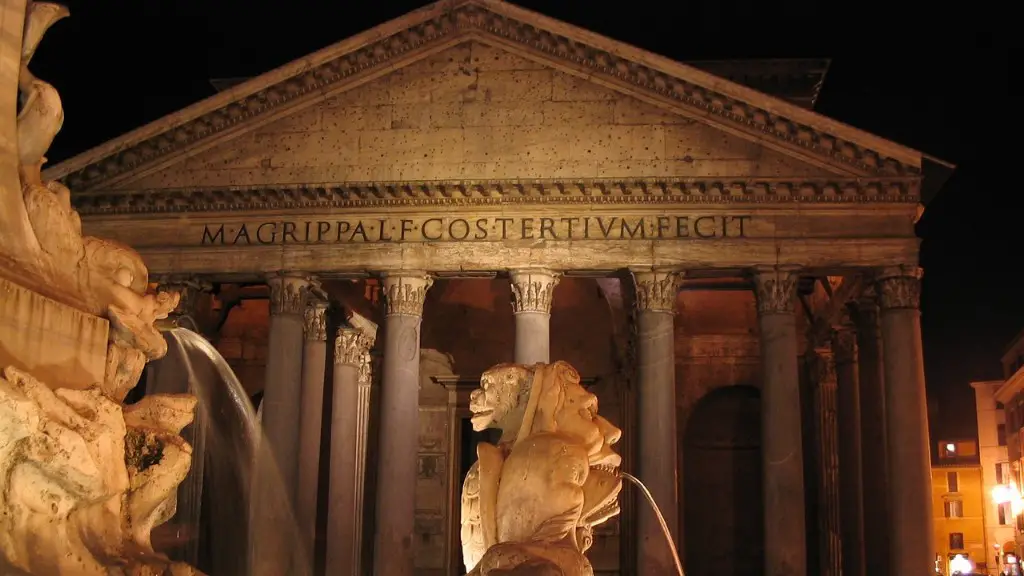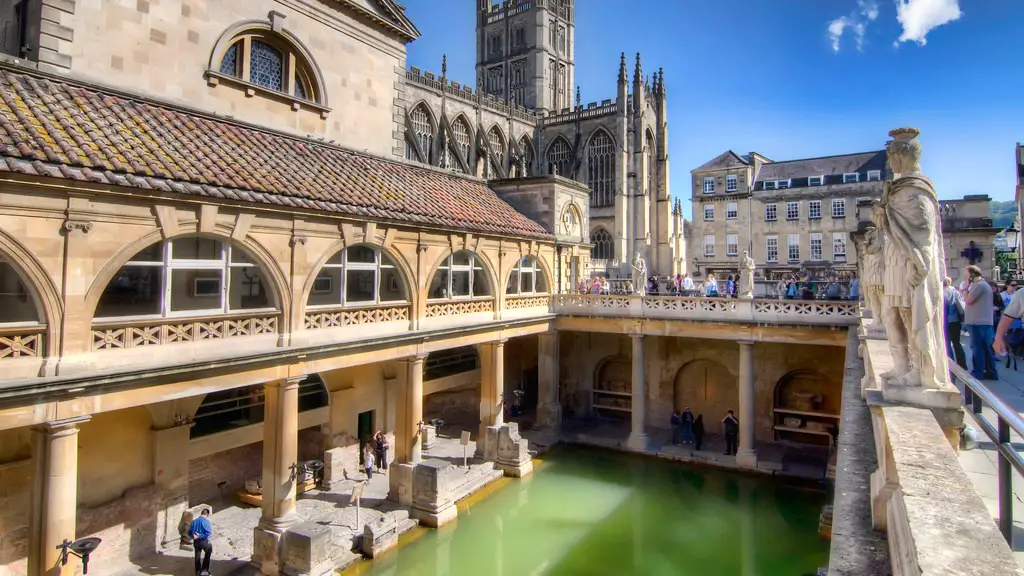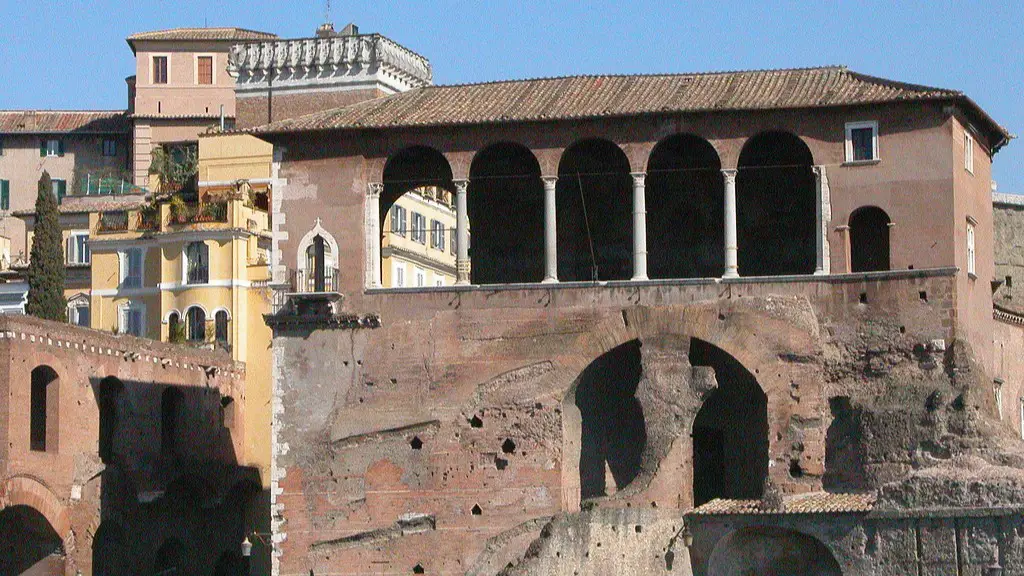Romans And Their Legacy
The ancient Romans are remembered for their grandeur, the rule of law and the great empire that was created by the Romans more than two thousand years ago. They have left behind a rich legacy of literature, art, architecture and engineering that has provided inspiration for generations since their fall. The influence of their civilization is still felt in modern times, with their rich history of laws, philosophy, culture, and language living on in many of today’s societies. So why exactly do we respect the ancient Romans?
Civil Engineering
On the front of civil engineering, the ancient Romans excelled in their development of roads and public infrastructure that improved transportation and communication networks in their vast empire. The excellence in their engineering and construction is exemplified by one of the most famous and iconic Roman structures, the Colosseum. The grandeur of this majestic building is a shining example of Roman architecture and engineering, and is still popular today as a tourist site.
Rule Of Law
Roman legal systems have survived and has been influential in the development of modern legal structures across the world. Their legal framework valued and upheld fairness, justice and equality as a standard for their society. These legal systems have been the foundation for a variety of modern legal codes that still serve our society today, providing a standard for human rights, justice, and civil liberties.
Cultural Influence
The art and culture of the Romans has been praised, studied, and preserved for centuries. Thier art, literature and architecture has been the basis of classic works of Western culture, and could arguably constitute the backbone of all Western philosophy and humanities. The romance languages, Latin and Italian, still demonstrate the influence of the Roman language as a major language of Europe. The writings of such famous Roman authors such as Virgil and Cicero, which still live on in modern literature, are a testament to the the impact of Roman culture on our society today.
Military Strength
The Roman military was one of the most powerful military forces of its time, with their many successful campaigns and brutal conquests establishing them as an unrivaled force of power and dominance. This, coupled with the discipline instilled in the army and its leaders, propelled them to new heights of success and domination.
General Wisdom And Intellect
The philosophy and wisdom of the ancient Romans is still studied and respected around the world today. Their politicians and philosophers were driven by the pursuit of knowledge, helped in part by their strong education system which emphasized individuality and questioning. This advancement of the mind is something that has been influential to modern-day political discourse, decision-making and thought processes.
Legacy Of Government
The legacy of Roman government is still present in governments across the world. The system of democracy as a foundation of government directly derives from the government of the Roman Republic, in which citizens had a voice in the statemen form of government. In many cases, we still use aspects of this governance to shape our own governments, from voting systems to legislative assemblies.
Altruism And Generosity
The Romans were renowned for their generosity and kindness when it came to those in need, offering aid, resources and support to those less fortunate. This is typified by emperors such as Marcus Aurelius, who provided public services such as public baths and sanitation, giving citizens access to clean water and public health. The Roman military was also well known for its altruism, with arms and food typically provided to those in need, regardless of race or ethnicity.
Philosophy Of Religion
The philosophy of religion presented by the ancient Romans heavily influenced their worldview and the idea of religious tolerance. This is evidenced by their willingness to accept the beliefs of other cultures into their own through assimilation and integration. Despite having their own gods and goddesses, the Romans adopted a wide range of foreign gods and goddesses, such as the Egyptian gods, as to form a large pantheon of divinities. This acceptance of other cultures and religions has contributed greatly to the idea of religious tolerance in today’s world.
Symbolism Of Power
The power of the Roman Empire can still be seen in its iconic symbols, such as the eagle and the laurel wreath. These symbols of power were represented at public places, such as temples and public squares, to remind citizens of the power of the Empire. Although the Roman Empire is long gone, these symbols still convey the same power and influence of their ancient predecessors, signifying the strength and greatness of the Roman Empire.
Art Of Communication
The Romans were renowned for their skill in communication and rhetoric. This was evident in their political discourse and the grandeur of their public debates. Much of this is attributed to the formal education system which the Romans developed. This education system focused on rhetoric and oratory, building the ability for citizens to effectively communicate and make their case. This strong influence is still seen in our societies today, with rhetoric being an important part of political discourse.
Moral And Social Values
The moral and social values of the Roman Empire are still echoed in today’s society. The Romans valued equality and justice, and had a firm belief in the rewards of hard work and perseverance. This was demonstrated in their commitment to their public services and infrastructure, such as their public baths and sanitation systems. The culture of perseverance and work ethic established by the Romans during their kingdom has continued to remain as a part of many modern societies, with hard work and determination being considered essential roots of success.
Conclusion Of Greatness
The greatness and might of the Roman Empire have become the stuff of legend, but its real-world impact is undeniable. From literature and art to civil engineering, politics, and culture, the influence of the Romans extends far beyond their Empire. They understood that peace and prosperity must be maintained for the strength of the Empire, and their legacy as a testament of power and greatness still stands strong in today’s world. And so, it is clear why we respect the ancient Romans.



